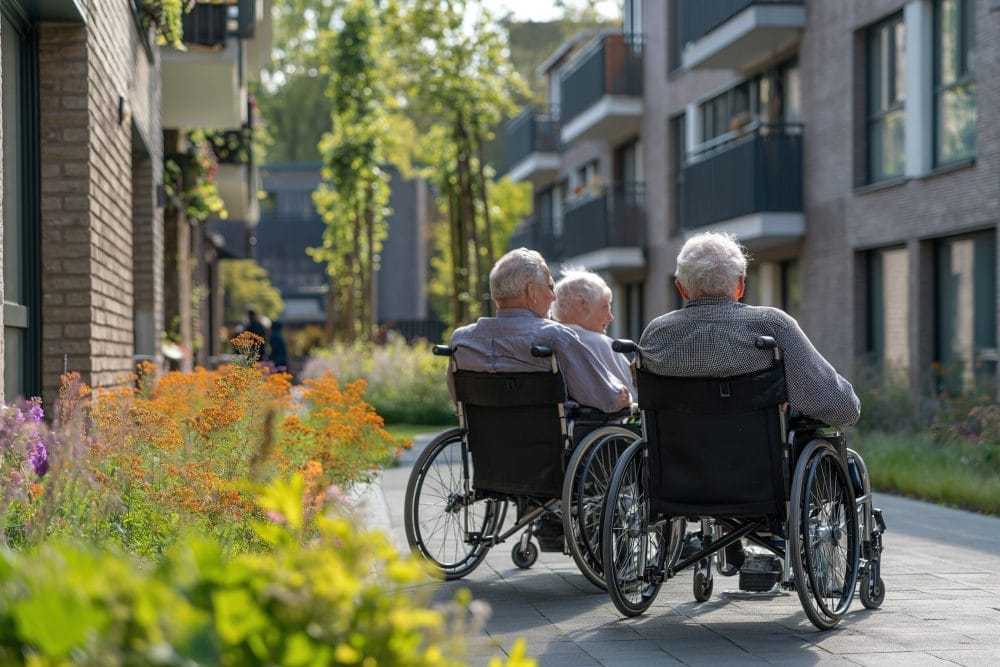Retirement communities and senior housing aren’t just places to live—they’re lifestyles. They promise freedom from home maintenance, a calendar full of activities, and the chance to connect with peers who are in the same stage of life. But here’s the thing: not everyone qualifies to move in, and the reasons might surprise you.
Senior housing has rules, restrictions, and standards that can feel like an exclusive club with fine print. Before packing up for bingo nights and garden socials, it’s worth knowing what could keep someone from crossing that threshold.
1. Being Too Young
Age isn’t just a number when it comes to senior housing—it’s the key that unlocks the door. Most communities set the bar at 55 or 62, depending on the housing type. Showing up a few years early won’t fly, even if someone feels “old enough” in spirit. These rules exist to protect the community’s purpose: creating a shared space for those truly in their retirement years. Until then, it’s wait-and-see territory.
2. Needing More Care Than They Offer
Senior housing is not the same as a nursing home, and that’s where confusion often begins. Independent living or 55+ communities typically don’t provide medical care, so residents must handle daily life independently. If someone needs around-the-clock supervision, advanced memory care, or medical staff on call, they’ll be directed elsewhere. The setup is about freedom and light support, not hospital-level assistance. Walking in expecting full-time care is an automatic disqualifier.
3. Financial Ineligibility
Senior housing often comes with financial requirements, and ignoring them is like skipping the fine print on a contract. Communities want assurance that residents can handle rent, fees, and extra costs comfortably. Those who can’t show steady income, savings, or coverage may be turned away. This isn’t about being unkind; it’s about preventing financial strain that could cause bigger problems later. Money matters, and communities make sure it’s stable before handing over the keys.
4. Criminal History
Background checks are standard in many senior communities, and past trouble can close the door quickly. A serious criminal record, especially involving violence or drugs, is often non-negotiable. The reasoning is simple: the goal is to keep residents safe and maintain a peaceful environment. While each community may have different guidelines, red flags can end an application before it even starts. Safety always takes the lead in these decisions.
5. Ignoring Community Rules
Senior housing isn’t a free-for-all—it’s a neighborhood with boundaries. Loud parties, smoking in non-smoking areas, or repeatedly breaking shared-space rules can all get someone disqualified. Management looks for residents who can blend into the community vibe and respect group living. A history of ignoring rules in previous rentals may also work against an applicant. Cooperation is part of the package, and refusal to play along is a dealbreaker.
6. Health and Mobility Restrictions
While mild health issues are expected in senior years, major mobility challenges can complicate eligibility. Communities designed for active seniors want residents who can participate in events, outings, and shared spaces without constant assistance. If someone requires too much physical support, the environment may not be safe for them. It’s not about exclusion—it’s about ensuring that the community fits the person’s needs. Sometimes a more specialized housing option is the safer, better choice.
7. Having Dependents Who Don’t Qualify
Senior housing is built for seniors, not families, and bringing along dependents can create problems. Children or younger relatives who need housing won’t meet the age requirements, making the arrangement impossible. Even if they are dependents due to special circumstances, the rules are typically firm. Exceptions are rare and usually only apply to spouses who meet minimum age thresholds. A household that doesn’t fit the senior-only model will usually be declined.
Know the Rules Before You Move
Senior housing can be a dream come true, but like any community, it comes with clear boundaries. From age limits to financial checks, the system is built to protect both the residents and the community as a whole. Understanding these deal-breakers helps avoid disappointment and ensures people find the right kind of housing for their needs. It’s all about finding the best fit, not just any fit.
What do you think—did any of these disqualifiers surprise you? Share your thoughts or drop a comment below.
Read More
10 Senior Benefits That Could Disappear This Year
10 Senior Discounts That Are Quietly Being Eliminated








